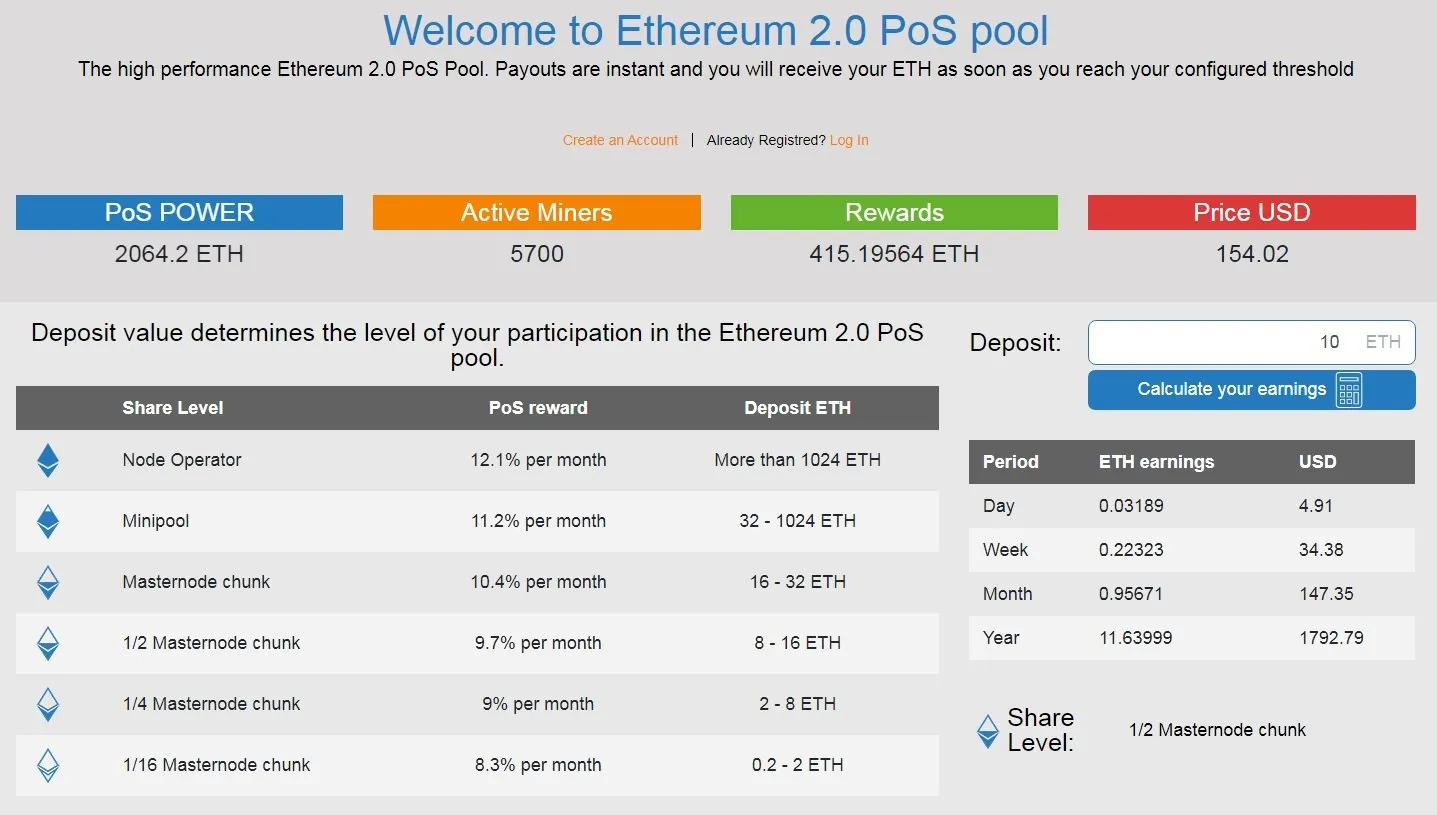In brief
- An "Ethereum 2.0 PoS pool" invites users to stake their Ethereum in return for over 100% yearly gains.
- The Ethereum 2.0 upgrade and proof-of-stake consensus algorithm changes are not yet implemented on the real network.
- The fake website uses links to real projects to appear legitimate.
A website has set up a scam offering based around the next upgrade of the Ethereum 2.0 blockchain. The website claims to let you stake your Ethereum and earn staking rewards on the Ethereum 2.0 blockchain.
Only the Ethereum 2.0 blockchain hasn’t been built yet.
Ethereum 2.0 is a massive update of the Ethereum blockchain that was previously scheduled to go live in January 2020. It is now scheduled for July 2020—probably. The upgrade will migrate the network to a proof-of-stake consensus algorithm, getting rid of crypto mining over a period of time.
PoS allows crypto holders to generate new coins via “staking,” a method that sees users put down some Ethereum as a deposit. If they responsibly keep the network running, they will keep their money and the staking rewards. But act maliciously and they can lose their money.
But until then, there isn’t any way to stake coins, making this offering highly dubious.
Currently, the fake website claims that it has 5,701 active “miners” with a “PoS Power” of 2,064.3 ETH ($322,000).
There are a number of red flags. The proof-of-stake (PoS) mining pool claims to offer 100% yearly returns—which would be unrealistic even if the blockchain upgrade was ready. While staking rewards depend on the number of stakers, they are unlikely to be this high.
Additionally, the fake website claims that the minimum stake is just 0.2 ETH, while the real Ethereum 2.0 will require users to lock up at least 32 ETH to see any gains.

Perhaps to cover their tracks, the scammers also used a bunch of legitimate websites’ and projects’ links as their own, linking Ethereum.org’s official GitHub repository as their source code.
Strangely, the specified Ethereum address for donations—with 400 ETH in its balance—actually belongs to wallet developer MyEtherWallet.
our new donations account for eth is 0xDECAF9CD2367cdbb726E904cD6397eDFcAe6068D
— MyEtherWallet | MEW (@myetherwallet) February 21, 2018
So while the website may be a scam, at least any unsuspecting donations will go to a legitimate project.

